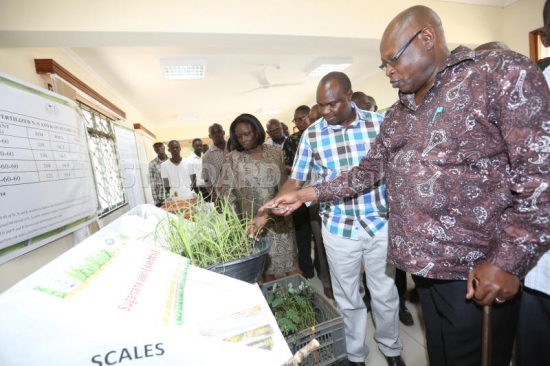×
The Standard e-Paper
Home To Bold Columnists

Sugarcane farmers have been handed a lifeline by the Common Markets of East and Southern Africa countries (Comesa), after agreeing to extend protectionist measures aimed at shielding the sugar sector from cheaper imports.
Trade ministers from Comesa on Thursday approved a one-year extension on sugar import safeguards , following pleas by Kenya. It is the sixth extension that Kenya has won.